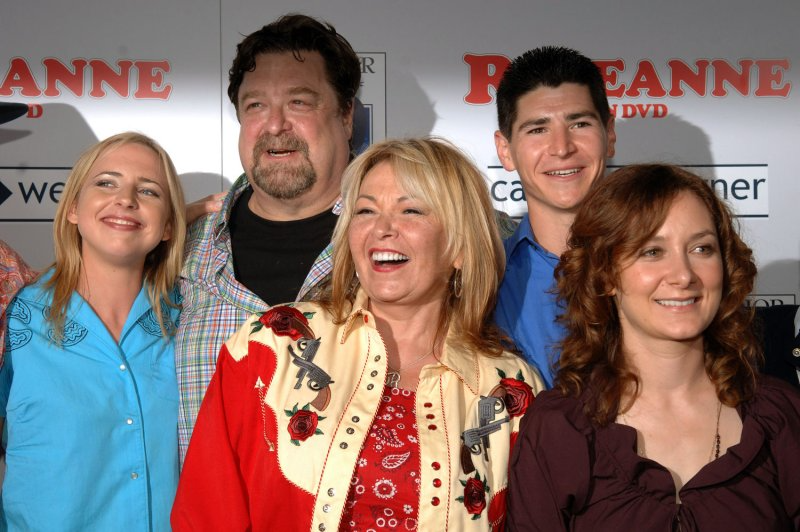
Introduction
When Roseanne first hit the airwaves in 1988, it quickly became a cultural phenomenon, reshaping the landscape of television. Nearly three decades later, the show remains one of the most beloved sitcoms of all time. Whether you grew up watching the Conner family or discovered them through reruns, there’s no denying the lasting impact this series has had on pop culture. In this article, we’ll explore the reasons why Roseanne is more than just a comedy — it’s a revolutionary show that speaks to families, culture, and society.
The Groundbreaking Power of Roseanne‘s Humor
What made Roseanne stand out in the late ’80s and early ’90s was its raw, unapologetic sense of humor. The show’s unique approach to dealing with everyday issues — from financial struggles to marital conflicts and raising kids — resonated deeply with viewers. It wasn’t afraid to dive into the gritty realities of family life in America. Viewers weren’t just watching a TV show; they were seeing their own lives reflected on screen.
Roseanne Barr as the title character, Roseanne Conner, delivered a biting, sarcastic wit that many TV mothers had never dared to express before. She wasn’t the perfect, all-knowing matriarch — she was flawed, real, and unapologetically herself. This was a stark contrast to the cookie-cutter TV moms who often graced the small screen. Roseanne’s no-nonsense approach became a model for how television could blend humor with reality.
The Conner Family: A Reflection of American Life
The characters of Roseanne represented a cross-section of working-class America. The Conners weren’t rich, glamorous, or idealized; they were just like the millions of families who worked hard to get by. The show depicted struggles with income inequality, the challenges of raising children in a turbulent world, and the complex dynamics of familial relationships. At its core, Roseanne was a love letter to the working class, showing that even the most ordinary families could be extraordinary.
While many sitcoms at the time focused on affluent or quirky families, Roseanne made it clear that the heart of America was in its hardworking, imperfect households. The show’s ability to portray these struggles, and the way it normalized difficult issues, set it apart from everything else on TV.
Cultural Relevance: Breaking Boundaries with Social Issues
Roseanne wasn’t afraid to tackle important social and political issues, often addressing topics that were considered taboo for a sitcom. From the struggles of the working poor to discussions about domestic abuse, mental illness, and LGBTQ+ rights, the show was unflinching in its portrayal of real-world problems.
In 1994, one of the most talked-about storylines was when Roseanne’s character came out as a feminist and voiced strong opinions on the struggles of women. It was a progressive move that made the show stand out as both ahead of its time and deeply relatable.
Another groundbreaking episode was when Roseanne’s daughter, Becky, had an abortion — something almost unheard of in a mainstream TV show at the time. Roseanne didn’t shy away from heavy topics, but rather handled them with a combination of humor, sensitivity, and realism.
Iconic Moments That Defined an Era
Roseanne created some of the most iconic moments in TV history. From the hilarious “Eat dirt, Dan!” to the tear-jerking finale, the show was filled with memorable quotes and heartwarming scenes that still resonate with fans today. One of the most iconic moments was when Roseanne won the lottery, transforming the family’s fortunes in an instant. The subsequent episodes explored the complexities of newfound wealth, showing that money doesn’t solve all problems.
However, the true beauty of Roseanne lay in its ability to blend comedy with poignant moments. Viewers could laugh one moment, only to be brought to tears the next. This emotional rollercoaster made Roseanne more than just another sitcom. It was a deep exploration of family, identity, and the struggles of everyday life.
The Legacy of Roseanne and Its Revival
After its original run ended in 1997, Roseanne returned in 2018 for a revival that brought both nostalgia and modern sensibilities to the table. While the revival brought back the Conner family, it also acknowledged the changing political landscape of America. The show’s relevance had not diminished — it was still very much in tune with the issues facing families in the present day.
While the revival received mixed reactions, there was no denying that it reignited interest in the original series. Fans who grew up with the Conners were once again able to experience the hilarity and authenticity that had originally drawn them to the show. In many ways, Roseanne became a reflection of the cyclical nature of life, where old problems are reexamined through a modern lens.
Conclusion
At its core, Roseanne is a show about family, identity, and the human condition. Through its clever humor, groundbreaking social commentary, and iconic moments, it has earned its place as one of the most beloved sitcoms of all time. Whether you’re a fan who grew up with it or someone discovering it for the first time, Roseanne is a show that continues to inspire and entertain. Its legacy lives on, proving that even after all these years, the Conner family will always have a place in our hearts.
